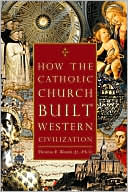Stunning news from the scientific world:
One of life's greatest mysteries is how it began. Scientists have pinned it down to roughly this:Some chemical reactions occurred about 4 billion years ago — perhaps in a primordial tidal soup or maybe with help of volcanoes or possibly at the bottom of the sea or between the mica sheets — to create biology.Now scientists have created something in the lab that is tantalizingly close to what might have happened.It's not life, they stress, but it certainly gives the science community a whole new data set to chew on.
And all it took was a team of intelligent beings who knew the right conditions for this almost-life to thrive. Does that sound familiar?

